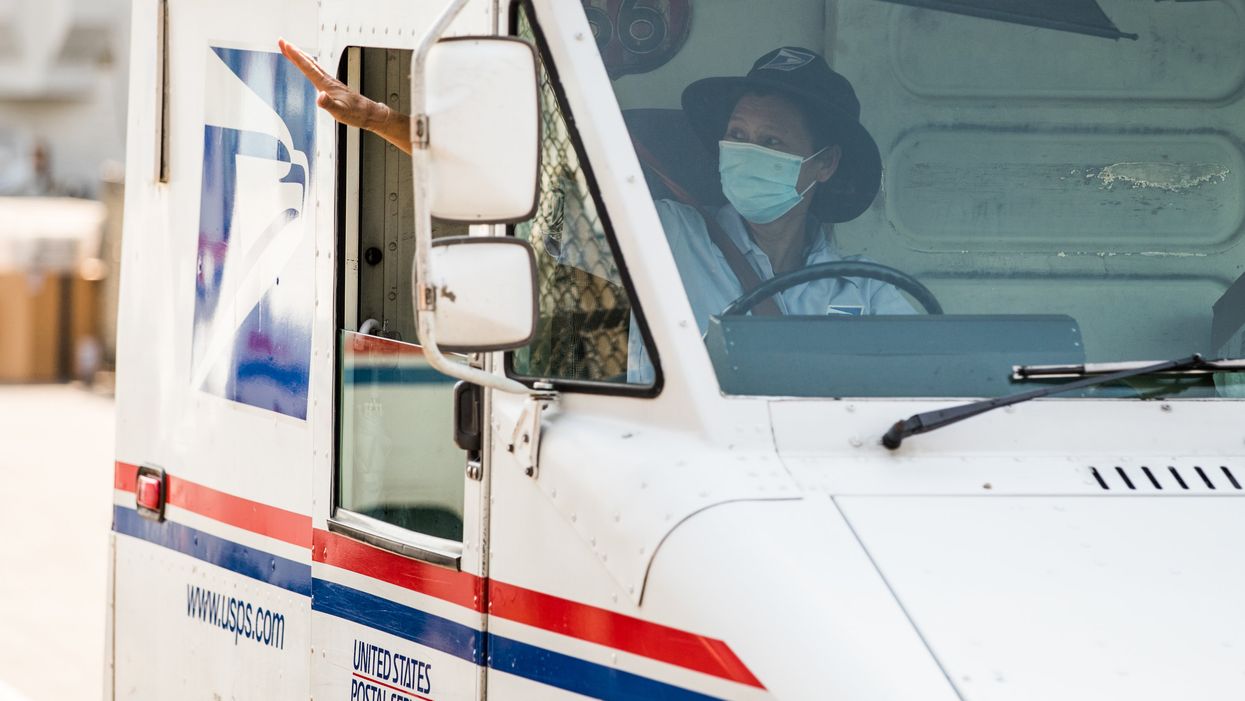Georgia has decided to fight a federal court ruling that ballots postmarked by Election Day must be counted even if they're delayed in the mail as long as three days.
A final decision on the appeal, assuming it comes by the election in eight weeks, will determine the fate of tens of thousands of votes — which could be decisive in a collection of high-profile close races, starting with the tossup contest for Georgia's potentially decisive 16 electoral votes.
The state is among 33, including half a dozen other presidential battlegrounds, where mailed ballots are normally valid only if they arrive to be counted by the time the polls close. But a week ago Judge Eleanor Ross of Atlanta sided with voting rights groups that argue those laws, if applied during a pandemic where a surge in remote voting is sure to put extraordinary strain on the Postal Service, will unconstitutionally disenfranchise a small but pivotal bloc of the national electorate.
Republican Secretary of State Brad Raffensperger over the weekend asked the 11th Circuit Court of Appeals to block Ross' ruling, mainly on the grounds that it was wrong for courts to change the rules so close to an election — an argument that has been persuasive to other federal appeals courts, including the Supreme Court in several cases this year.
The pandemic does not justify such judicial intervention just weeks before absentee ballots are to be delivered, Raffensperger argued, and it will cause confusion for voters and delays for election officials. State law says the final result must be certified 17 days after Election Day, even as people who forget to sign their ballot envelopes or have indecipherable handwriting are given a chance at a do-over.
While she is "reluctant to interfere with Georgia's statutory election machinery," Ross wrote, such action is justified "where the risk of disenfranchisement is great, as is the case here."
A record 1.1 million Georgians voted by mail in the June primary, almost half the total vote. And 1 percent of the ballots were rejected, according to the state, seven out of eight of them because they were received at county election offices after the polls closed. But voting rights groups say the 8,500 that were "too late to count" is a significant understatement because many counties did not calculate their numbers completely. Two years ago, 3 percent of absentee ballots were rejected.
Statewide turnout this fall is likely to crest 5 million, and a comparable share may vote absentee in order to avoid risk of exposure to Covid-19 at a polling place. (The state has allowed no-excuse absentee voting for 15 years.)
The lawsuit at issue was filed by the New Geogia Project, a voter registration organization, which estimates at 60,000 the number of ballots likely to be received after Election Day. In the state's governor's race two years ago, Republican Brian Kemp's margin of victory over Democrat Stacey Abrams was 55,000 votes.
Bill Clinton in 1992 was the last Democrat to carry the state, and Donald Trump won it last time by 5 points. But polling since May has shown Joe Biden in a statistical tie with the president. In addition, in a highly unusual situation both GOP-held Senate seats are on the ballot this fall and have both become highly competitive, as have a pair of House contests in the Atlanta area.




















